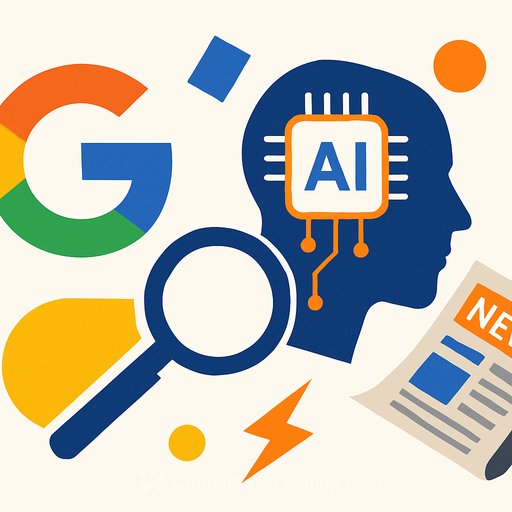End of Organic Search As We Know It
Google's shift to AI-powered search is hitting digital news media hard. New AI tools like AI Overviews and AI Mode are reducing the need for users to click through to original news sources. This drop in traffic cuts off vital ad revenue and subscription opportunities for publishers already struggling in the digital age.
According to the Wall Street Journal, some media companies have seen drastic traffic declines. For example, Business Insider experienced a 55% drop in search traffic from April 2022 to April 2025. This decline forced significant staff reductions, with CEO Barbara Peng pointing to "extreme traffic drops outside of our control."
What This Means for News Publishers
Google is moving from a traditional search engine to an “answer engine,” providing summarized answers instead of links. Nicholas Thompson, CEO of The Atlantic, says publishers must find new strategies to survive. Some, like The New York Times, have already taken legal action, suing OpenAI and Microsoft over copyright infringement claims related to AI training on news content.
Publishers argue that the AI industry exploits their content without fair compensation. As Google’s AI-enhanced search reduces referral traffic, tensions are rising across the media sector.
Signs of Change in Search Behavior
Even Google’s position faces challenges. Earlier this year, Apple executive Eddy Cue revealed in federal court that Google searches within Safari dropped for the first time in 20 years. Google disputed this but continues to push AI features aggressively. Nick Fox, Google’s head of knowledge and information, called this a "transformed search experience" despite ongoing issues with AI accuracy.
The Consequences for Media and Information Quality
This situation creates a dangerous feedback loop. Google relies on news content to power its AI features, but by cutting publishers out of the revenue stream, the supply of quality content risks drying up. This could lead to an increase in AI-generated misinformation and recycled content.
Research shows Google's AI summaries favor large, established outlets, making it harder for smaller publications to gain visibility. The media industry must explore new business models to address this existential threat.
Looking Ahead: Legal Battles and New Strategies
- Legal challenges against Google's scraping of copyrighted content are growing.
- Publishers emphasize that "links were the last redeeming quality of search" that drove traffic and revenue.
- Without this, Google’s AI approach is seen as content theft by many in the media.
For PR and communications professionals, this shift means rethinking how to engage audiences and secure earned media in an environment where organic search traffic declines. Staying informed on AI developments and adapting to new digital channels will be crucial.
To understand how AI impacts communication strategies and to build skills that align with this changing landscape, consider exploring up-to-date AI courses and training resources like those available at Complete AI Training.
Your membership also unlocks:





